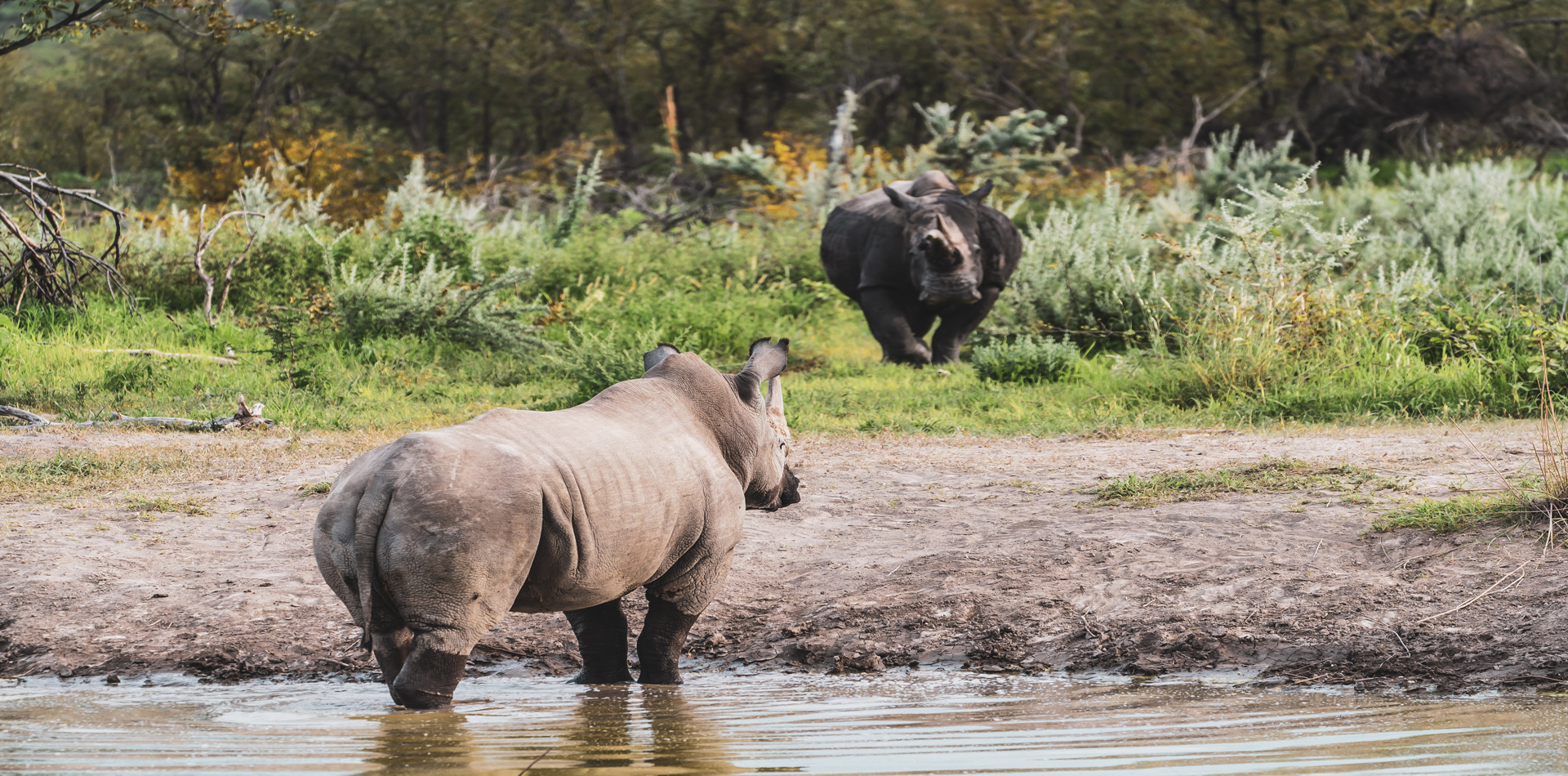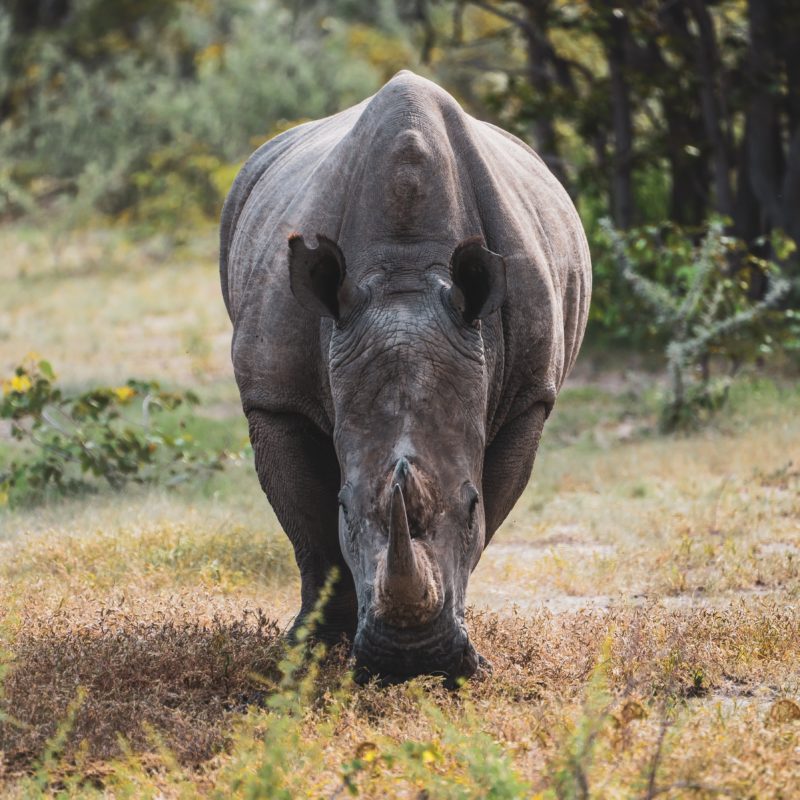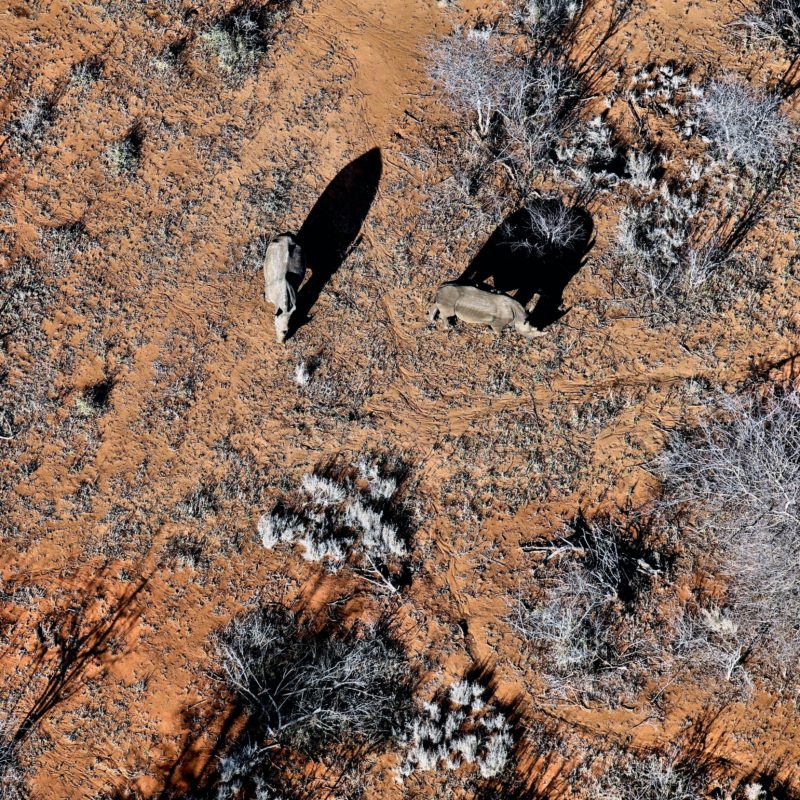Namibia
Nestled in northern Namibia, on Etosha National Park’s eastern border, lies Onguma Game Reserve. Onguma spans 34,000 hectares of protected land, boasting over 30 different animal species and 300 birds. This is a magical spot worth exploring, with a number of Black Rhino also calling it their home. Labelled ‘critically endangered,’ all Black Rhino are owned by the state of Namibia where a custodian programme is in operation, allowing non-State game reserves to look after the species. Consequently, this increases their geographic range and allows for the potential of diversification, thus strengthening their gene pool.
The Frontier Collective has been training wildlife rangers in Namibia in a number of ways from patrolling to marksmanship and medical training. With plans to work alongside National Park authorities, implementing the same training programme across all custodian reserves, Frontier will help ensure a standard operating procedure and skill level. Therefore, if a collaboration is required with neighbouring reserves, the opportunity for support is there.
Illegal poaching figures are currently lower than in the past, however since Namibia is home to a key rhino population, protection of this threatened species is crucial if they are to thrive into the future. Whilst it is promising to see government recognition of the value of wildlife tourism to Namibia’s economy, and efforts in place to prevent wildlife crime, we still need to ensure Field Rangers are on the ground making a difference. The Pelorus Foundation is actively supporting conservation initiatives like this to help protect wild species.





